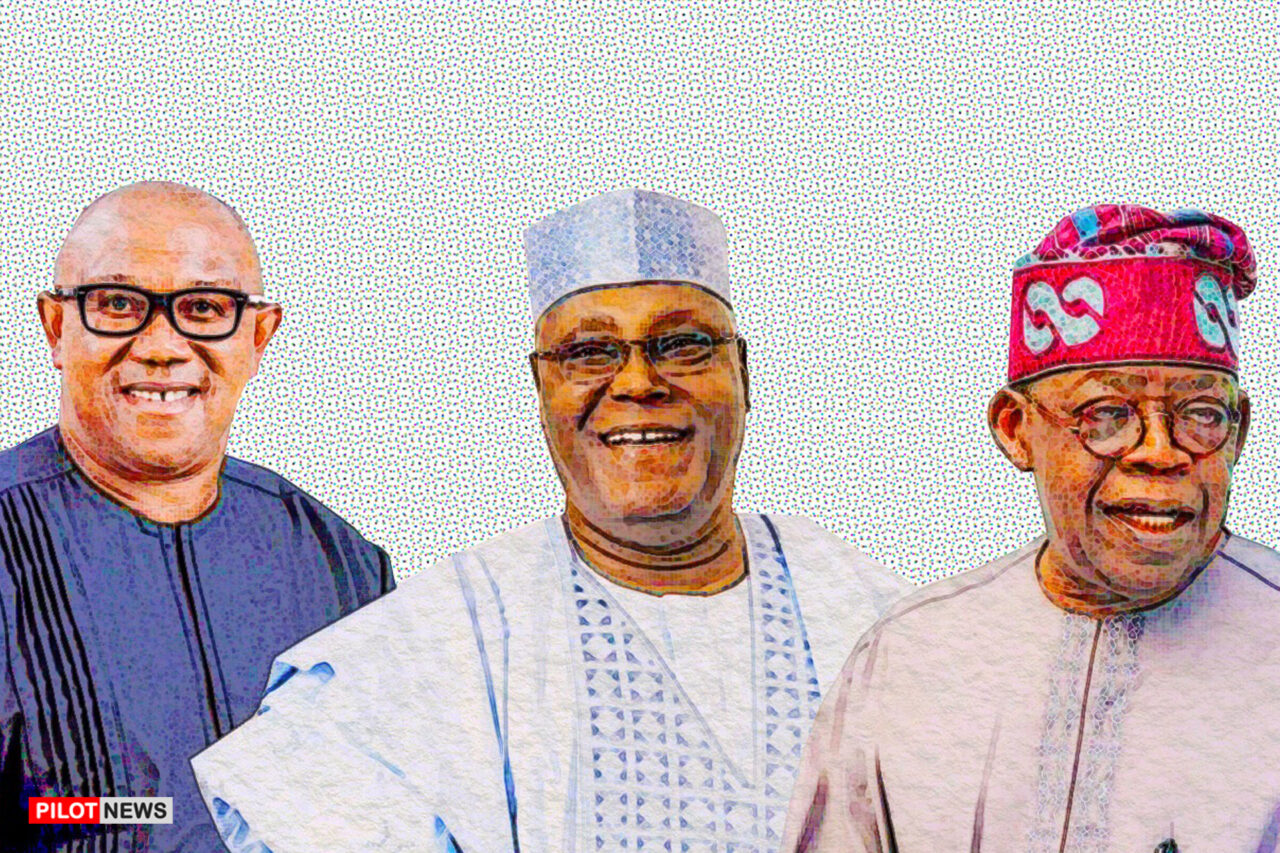An opinion article published in an American news publication, Foreign Policy (FP), has described the presidential candidates in the forthcoming 2023 general elections as “deeply uninspiring”.
The opinion, titled Nigeria’s Presidential Candidates Are Deeply Uninspiring and published on Wednesday, July 6, 2022, was written by Kọ́lá Túbọ̀sún, a Nigerian linguist and writer.
Providing an expert’s point of view on next year’s presidential election, Túbọ̀sún beamed his laser at the major contenders in the power tussle: Bola Tinubu, Atiku Abubakar, and Peter Obi, the candidates of the All Progressives Congress (APC), Peoples Democratic Party (PDP) and Labour Party (LP) respectively.
He argued that the emergence of Tinubu and Abubakar as the presidential flagbearers of the APC and PDP respectively “ended the possibility that the next president of Africa’s most populous country would be someone belonging to an emerging—rather than dying—generation.”
About Tinubu, the author of Edwardsville by Heart, a collection of poetry, stated: “There are plenty of problems with Tinubu, most notably his health. Over the last couple of years, he has spent months abroad on medical vacations, just as Buhari has, fueling fears that the rigors of the job might prove fatal. Umaru Musa Yar’adua, president from 2007 to 2010, died on the job.
“Videos of Tinubu speaking on the campaign trail show his hands shaking, among other physical and verbal stumbles. His supporters point to his knack for discovering and mentoring talented public servants and his role in turning the country’s largest city, Lagos, into a prosperous and livable state as his biggest strengths, but they ignore credible accusations that the state is run on crony patronage.”
Speaking of Atiku, he wrote: “Meanwhile, Abubakar is a perennial runner for the top job, since his relationship with his former principal Obasanjo soured after their tenure. According to Obasanjo, his erstwhile deputy is a man of dubious character who should never be trusted with power.
“There are other foreign allegations of corruption against Abubakar, none of which was helped by the suggestion that he had been placed on a U.S. visa ban for years and was only able to enter the country in 2019 because of the intervention of Trump administration officials who found him a temporary waiver.
“Abubakar stayed at the hotel in Washington owned by then-U.S. President Donald Trump during his visit, and he has not returned to the United States since Trump’s defeat. People already worried that he is seeking the country’s highest office just so he can get diplomatic immunity to travel have yet found no reason to change their opinion.”
Túbọ̀sún added, “Abubakar also has other ideological baggage. In May, after the extrajudicial killing of a student in Sokoto state over allegations of “blasphemy” in a WhatsApp group, a hasty condemnation of the act was published on Abubakar’s Twitter, then quickly deleted. A day later, in a Facebook post written in Hausa to his core supporters, Abubakar said he did not authorize the tweet. ”
Describing Obi as “a third candidate, who is currently generating excitement among young people disenchanted by the last decades of rule by the two major parties”, he stressed that “Obi’s hands are not clean when it comes to abuses of power, either. He is allegedly thin-skinned and has been accused of being associated with acts of impunity by the men who once populated the government paramilitary agency known as SARS, whose killings and kidnappings spurred protests in 2020.”
He further stated that though “his (Obi) candidacy seems to carry the best hope for a change of guard to a new generation, having energized millions of ordinarily apathetic citizens to mobilize for his candidacy all around the country”, “his biggest handicap, a lack of nationwide political organization that matches the two established parties, is being mitigated by a groundswell of urban support, especially on social media”, adding that “his relative youth and considerable charm have given his campaign a boost—but so has his ethnicity, a constant factor in Nigerian politics. The Igbo, his ethnic group, haven’t held the presidency since 1966.”
Based on his foregoing comments on the three leading contenders, he concluded: “And so, in 2023, in a country of about 200 million people with a widespread and successful diaspora, the choices available in the next election are two undesirable candidates with shady or complicated reputations and a young(er) populist candidate with a vision and visibility, but with no stable political base nor, as yet, a believable chance at national success.
“Nigeria’s challenges require a president capable of meeting them with urgency. The Academic Staff Union of Universities has been on strike for a few months now, and students are at home with no answer to the direction of their future. Inflation is high, and the conflict in Ukraine has skyrocketed food prices across the continent without easy solutions at home.
“Insecurity haunts the country, and the social welfare net, such as it is, is faltering under attacks by insurgents and the pressure of foreign loans. The next elections will be consequential, but the options do not inspire confidence.”
- Nigeria’s Inflation Falls to 18.02% in September - October 16, 2025
- Osimhen Fires Nigeria into 2026 World Cup African Playoffs - October 14, 2025
- FG Approves New Admission Criteria for Tertiary Institutions - October 14, 2025

